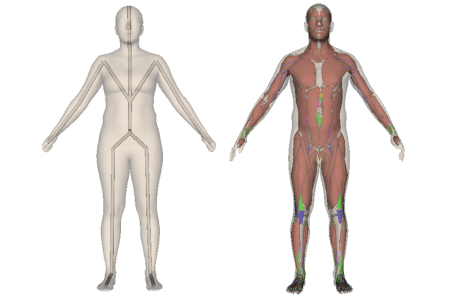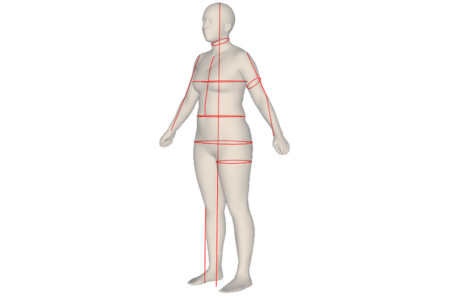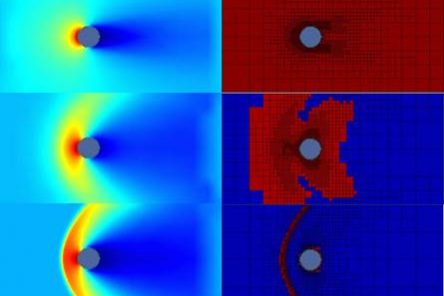CFD Research has developed a Machine Learning based software toolkit for predicting critical properties of solid and liquid propellant ingredients. The software is used to accelerate the development cycle of high performance solid and liquid energetic ingredients as property prediction can be estimated before attempting laboratory synthesis (thus avoiding synthesis trials which will likely produce unwanted results). The techniques and results have been validated against experiments and are now used by Department of Defense. ProDeT is available to DoD government and contractors under a DoD Open Source software license.
Liquid Propellant
- Heat of vaporization
- Ignition delay time
- Toxicity
- Density
- Viscosity
- Melting Point
Solid Energetics
- Heat of sublimation
- Density
- Sensitivity
- Toxicity
- Density
- Melting Point
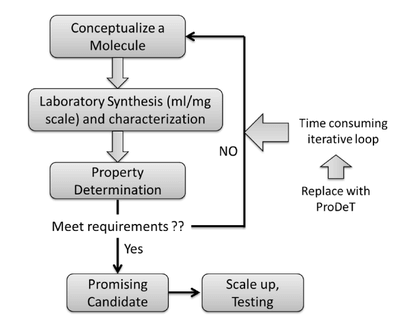
Capabilities
- Efficient algorithm to identify molecular descriptors/features that describe properties, such as density, viscosity, ignition delay, sensitivity, melting point
- Sophisticated feature generation capability from quantum computed outputs, such as Gaussian Quantum Chemical Program
- Capability to use external user features
- Library of pre-built structure-property relations developed by rigorous research and development by CFD Research
- Capable of handling both molecular and ionic species (such as ionic liquid and salt)
- Easy to use graphical interface
- A WebApp for uploading molecular inputs for computing properties using the machine learnt correlations
Benefits
- Accelerate development cycle of solid and liquid energetic ingredients
- Quickly identify high potential candidate ingredients before laboratory synthesis
- Use CFD Research developed highly accurate Structure-Property correlations for property prediction
Density
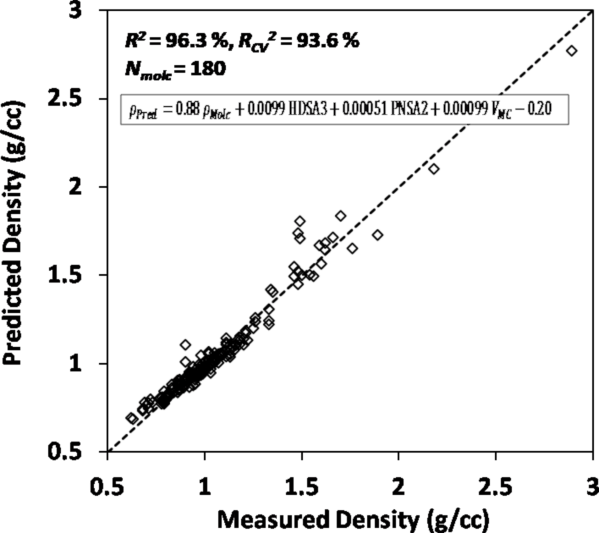
Viscosity
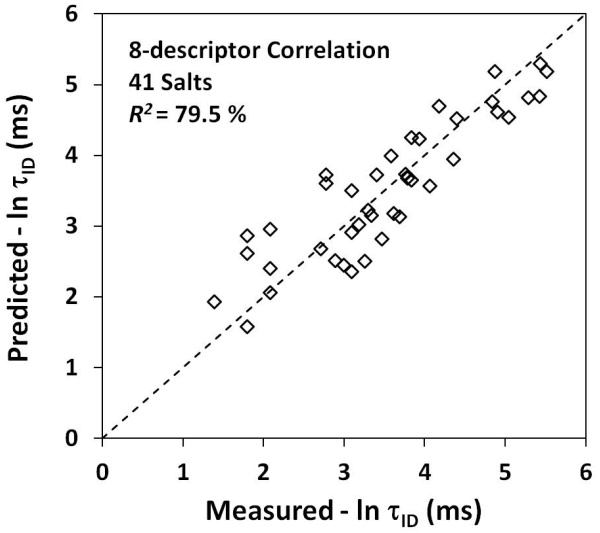
Impact Sensitivity


